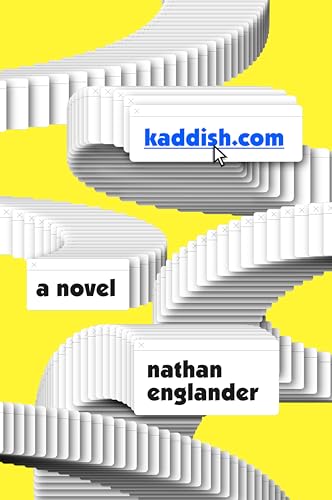In Kaddish.com, Shuli (née Larry) tries to set things right with his dead father 20 years after paying a stranger to say Kaddish through the internet instead of doing it himself. The Millions chatted with author Nathan Englander, who discusses the fascinations that drove his novel of obsession, the creepiness of Instagram, and why it doesn’t make any sense to be a writer.
The Millions: The book opens in 1999, at a crossroads where many people allowed the line between technology and private life to dissolve. What kind of thoughts about the internet did you bring to it?
Nathan Englander: I grew up really religious. I remember being tossed out of class for asking a question. It was like Philip Roth’s “The Conversion of the Jews.” My rebellion was solely theological, which is just heartbreaking. They were asking us to believe in a god that could know what everybody in the world was doing, what they’d done before, and what they’re going to do next. Like a predictive omniscience. It was such a giant ask. And so looking back, I was like, we’ve built it! My Instagram is full-on creepy. It knows I’m hungry and it offers me food. I think I found out my wife was pregnant from, like, a side ad. It really knows your stuff.
TM: What do you think makes people susceptible to strong religious beliefs?
NE: We’re in a moment of extreme black-and-whiteness, and I’m obsessed with the gray space. So I thought, this radically secular Larry still has his old self in him. What would it take to flip? “He used to be religious, now he’s secular,” is so part of my bio. But then I was thinking, man, I’m so hardwired for switching. People tease me that I’m very bad at being secular. I feel like my wife’s afraid she’s going to come through the door and I’ll be koshering the kitchen, or I’ll turn Hasidic while she’s out picking up our kid or something.
I’m also interested in giving mass to jokes. One of my first stories, “Reb Kringle,” is about a Hasidic guy who can’t afford to pay for his synagogue, so he has to work as a Macy’s Santa Claus. I used to have long hair, and my sister’s religious friends used to say, “I could make such a great wig out of that hair.” I was like, that’s a good joke—a woman who desperately needs a man’s hair.
TM: Why was it important for Larry to mourn his father in his own way and reject (initially) the pressure from his family?
NE: When a sister believes it’s a brother’s job to say Kaddish, it’s not symbolic. You need to say this prayer eight times a day for 11 months, and if you miss once, your father burns in hell. I wanted to find a bridge between such extraordinary opposing realities within a family. You know, it had been 10 years since my father passed away when I started the book. It’s been really moving to be on the road and hear from people who’ve accidentally read it while mourning. People are reflecting on how they mourn. Your relationship continues. I really feel that I get closer to my father as the years go on.
TM: In a dream, Shuli’s father inspires him to take on a crazy task. It reads like satire, but the emotions are genuine. How did you balance the different registers?
NE: We’re all on a mission. It really doesn’t matter what it is. I can’t read any more articles about people who need to “summit” things. Did you watch Free Solo? I was like, is it even ethically tenable to film this guy? The fact that he’s not dead is actually surprising. I’m also interested in us having empathy for the framing of a mission. We all cheer this guy on. I’m almost 50 and I still need everyone’s approval. Maybe that’s the writing life. My wife is always like, “Are you on the phone with your mother again?” It doesn’t make any sense to be a writer. It’s not supposed to work. And even after it does, you feel like it doesn’t. So you have a mission. What are you supposed to do except be on it?
This piece was produced in partnership with Publishers Weekly.



